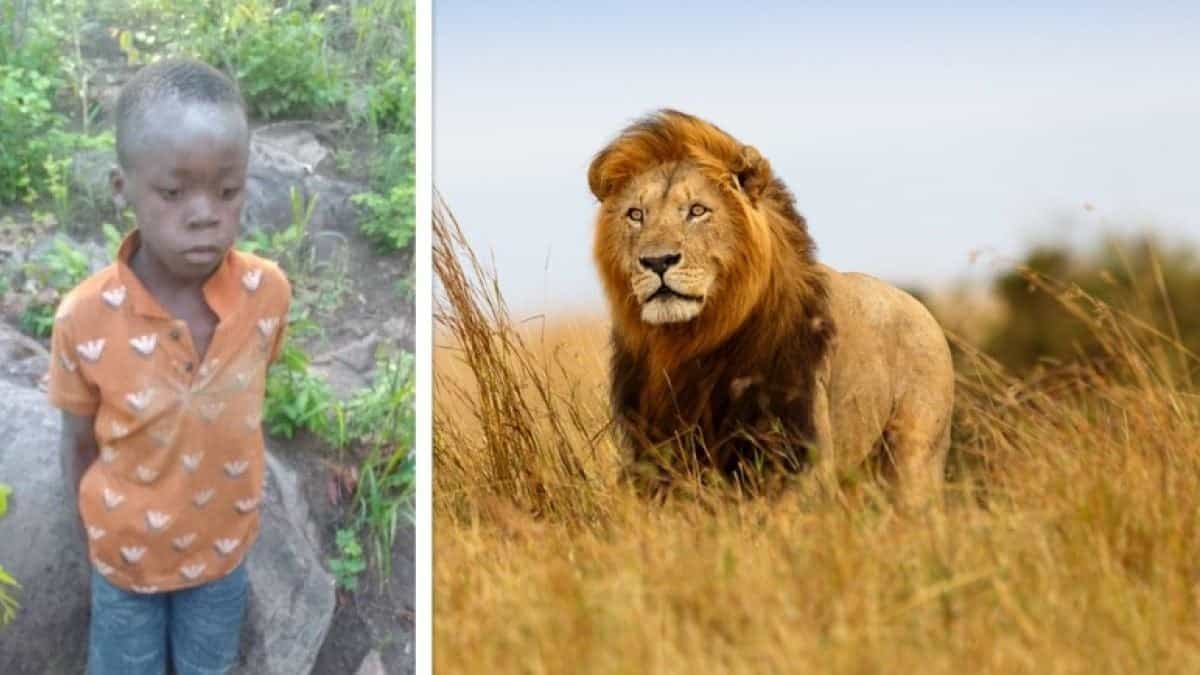Show table of content Hide table of content
In a remarkable tale of survival, an 8-year-old boy named Tinotenda managed to stay alive for five days in Zimbabwe’s Matusadona National Park, a vast wilderness teeming with dangerous wildlife. This extraordinary story highlights the resilience of the human spirit and the importance of survival skills, even for young children.
A child’s unexpected adventure in the wild
Tinotenda’s ordeal began when he became separated from his village, located 23 kilometers from the park’s boundaries. The 1,470 square kilometer reserve is home to a diverse array of animals, including 40 lions, elephants, zebras, hippos, and antelopes. Faced with this hostile environment, the young boy’s survival instincts kicked in, allowing him to overcome seemingly insurmountable odds.
As news of Tinotenda’s disappearance spread, search parties combed the area for days. Park rangers eventually spotted the child’s footprints, leading to a heart-stopping moment when Tinotenda saw a vehicle and ran towards it, finally ending his harrowing experience. This incredible rescue serves as a testament to the importance of encouraging children to connect with nature and develop outdoor skills, even in our increasingly digital world.
News This TikToker buys a used van and realizes it has a hidden surveillance device.
Survival techniques that saved a young life
Despite his tender age, Tinotenda employed several crucial survival strategies that ultimately saved his life. One of the most critical techniques he used was seeking refuge on rocky outcrops to avoid encounters with dangerous animals. This smart decision likely prevented potentially fatal confrontations with predators like lions, which roam freely in the park.
To sustain himself, Tinotenda foraged for edible fruits found in the savanna. However, his most impressive feat was his ability to find water in the drought-stricken landscape. As explained by local representative Mutsa Murombedzi, “What saved him was a technique learned from a very young age, which consists of digging a small well on the banks of a dried-up river.” This ancestral knowledge, passed down through generations, proved invaluable in Tinotenda’s fight for survival.
Challenges faced in the unforgiving savanna
The Matusadona National Park presented Tinotenda with a multitude of challenges beyond dangerous wildlife. Harsh climatic conditions, particularly the ongoing drought, posed a significant threat to the boy’s survival. Dehydration can quickly become life-threatening, especially for a young child exposed to the elements.
Navigation in such a vast and unfamiliar terrain would have been extremely difficult for an 8-year-old. The lack of recognizable landmarks and the disorienting nature of the savanna landscape likely contributed to Tinotenda’s inability to find his way back to his village. This highlights the importance of teaching children basic navigation skills and how to recognize natural markers in their environment.
The psychological impact of being alone in such a dangerous environment cannot be understated. Fear, anxiety, and the constant state of alertness required to survive would have taken a significant toll on the young boy’s mental state. Tinotenda’s ability to maintain his composure and continue applying survival techniques is a testament to his remarkable resilience and presence of mind.
Lessons learned from Tinotenda’s experience
Tinotenda’s incredible story of survival offers valuable lessons for both children and adults. It underscores the importance of teaching basic survival skills to young people, even in today’s modern world. Knowledge of how to find water, identify safe food sources, and avoid dangerous animals can mean the difference between life and death in extreme situations.
The incident also highlights the need for communities living near wildlife areas to be prepared for such emergencies. Developing comprehensive search and rescue protocols, as well as educating residents about potential risks, can help prevent similar incidents or lead to quicker resolutions when they do occur.
Tinotenda’s story serves as a powerful reminder of the human capacity for survival. It echoes other remarkable tales of children overcoming adversity in the wild, such as the story of a boy who lost his prosthetic leg during a family vacation, triggering an outpouring of community support. These narratives inspire us and reinforce the importance of resilience and adaptability in the face of unexpected challenges.
News Bat wings after 50? Here’s the most effective exercise, according to a coach.
Impact on wildlife conservation and human-animal coexistence
Tinotenda’s ordeal brings attention to the delicate balance between human settlements and wildlife habitats. As human populations expand and encroach upon natural areas, incidents of human-wildlife conflict become more frequent. This story underscores the need for effective strategies to promote coexistence between local communities and the wildlife that inhabits protected areas.
Conservation efforts must take into account the needs and safety of nearby human populations while also protecting the diverse ecosystems that support wildlife. Education programs that teach respect for nature and wildlife, combined with practical skills for safely navigating these environments, can help reduce the risk of future incidents like Tinotenda’s.
The boy’s survival story also highlights the importance of preserving traditional knowledge about local environments. The water-finding technique that saved Tinotenda’s life is an example of valuable indigenous wisdom that should be documented and passed on to future generations. This knowledge can complement modern conservation practices and contribute to more holistic approaches to environmental management.
Tinotenda’s experience reminds us of the powerful connection between humans and animals, even in challenging circumstances. It’s not unlike the story of a rescued street cat that remained on guard until it realized it was safe, showing how both humans and animals can adapt to and overcome difficult situations.
As we reflect on this extraordinary tale of survival, we are reminded of the resilience of the human spirit and the importance of maintaining a connection with nature. Tinotenda’s story, much like the heartwarming account of a veterinarian dining with a scared shelter dog, illustrates the profound impact that compassion, knowledge, and determination can have in overcoming seemingly impossible odds. It serves as an inspiration for us all to cultivate these qualities and to never underestimate the power of the human will to survive.


